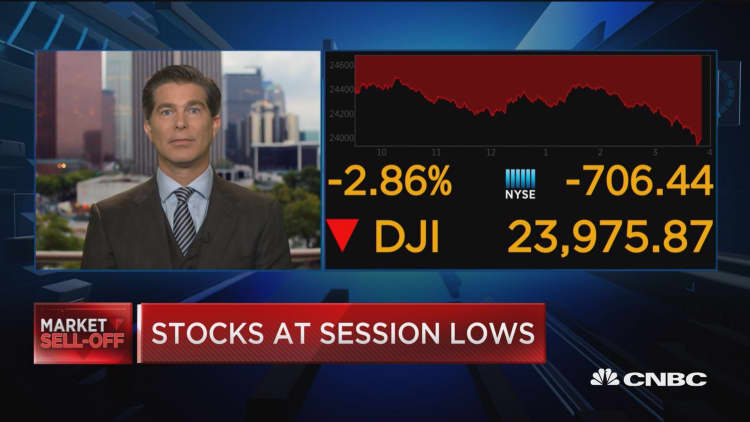The dollar hovered near a one-month low against a basket of major currencies on Friday and was on course for its biggest weekly drop in five as investors worried that escalating trade tensions could hurt global growth.
The dollar index, which measures the greenback against a basket of six other major currencies, was down 0.48 percent at 89.43. For the week, the index was down 0.7 percent.
China urged the United States on Friday to "pull back from the brink" as President Donald Trump's plans for tariffs on up to $60 billion in Chinese goods moved the world's two largest economies closer to a trade war.
"People seem to be being just a little cautious with so many headlines coming out, and wondering what the next headline could be and how the market is going to react to it," said Chuck Tomes, senior investment analyst at Manulife Asset Management in Boston.
Expectations about shifting policy at global central banks was also injecting an element of uncertainty into currency markets, Tomes said. Trump's decision on Thursday to replace H.R. McMaster as national security adviser with John Bolton, a hawk who has advocated using military force against North Korea and Iran, could also be weighing on sentiment on the margins, Tomes said.

"Because it is coming in conjunction with all the other things at this moment in time, people might have a little bit more of a reaction," he said.
A gauge of stress in the U.S. money markets climbed to its highest level in nearly nine years on Friday on concerns about growing costs for banks and other companies to borrow dollars and further interest rate increases from the Federal Reserve.
The gap between the three-month dollar London interbank offered rate and three-month overnight indexed swap rate expanded to 58 basis points, the widest since May 2009, according to Thomson Reuters data.
The yen, often viewed as a safe-haven currency in times of market turbulence and economic uncertainty, partly because of the resilience provided by Japan's current account surplus, rose to a 16-month high against the dollar.
The greenback was down 0.50 percent at 104.73 .
The dollar also slipped 0.28 percent against the Swiss franc, another currency bought in times of market uncertainty.
Sterling was up 0.35 percent after Bank of England rate-setter Gertjan Vlieghe said that interest rates will probably need to rise once or twice a year over the next few years, comments that are likely to help cement investors' expectations of a BoE rate hike in May.
The rose against the greenback as oil prices rose and hotter-than-expected domestic inflation data raised the chances of a further Bank of Canada interest rate hike over the coming months.

